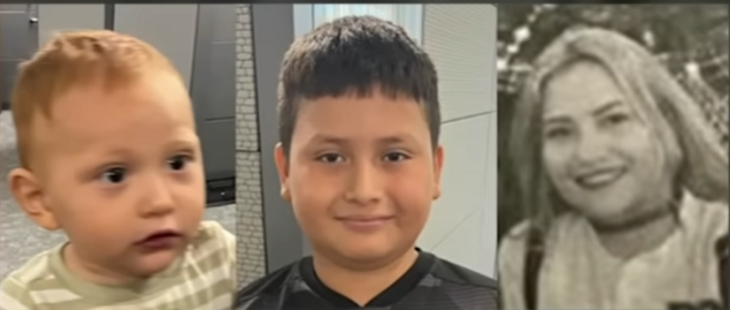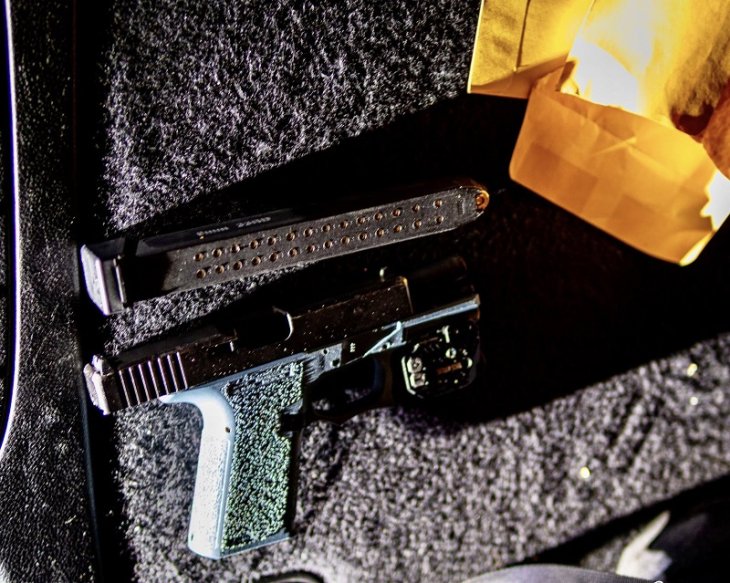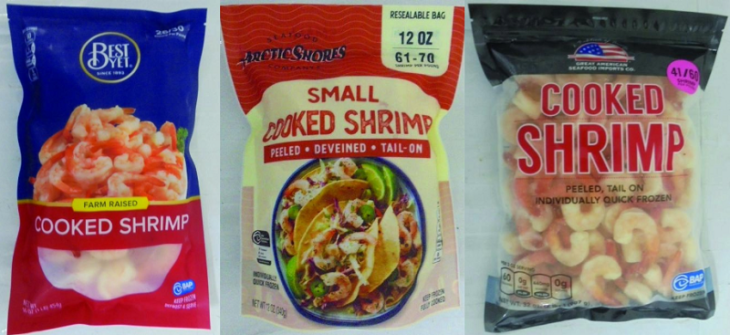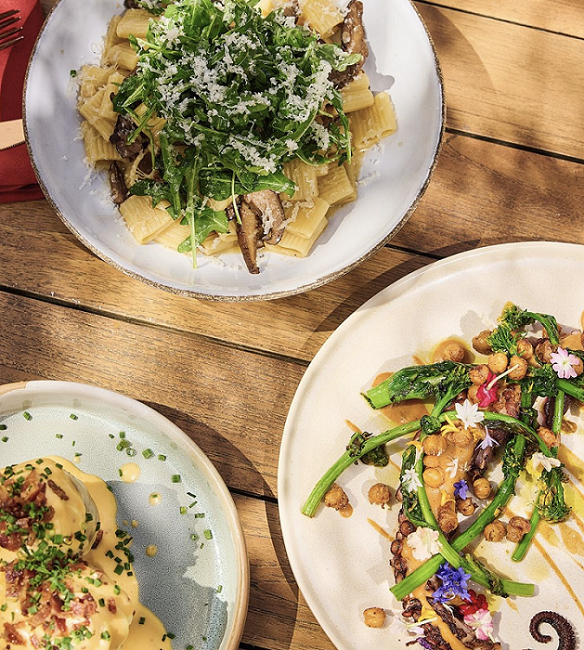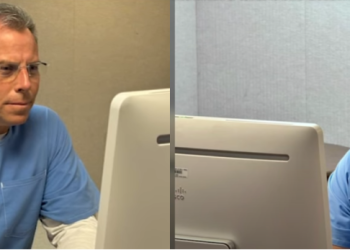Discover the Secrets Behind the Making of This Magical and Intense Lesbian Romance
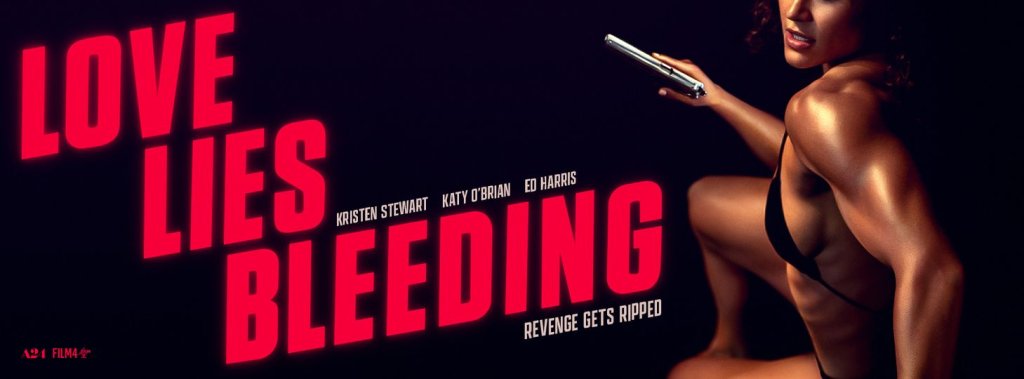
For the release of LOVE LIES BLEEDING, the queer crime thriller from director Rose Glass, I spoke with the director and co-screenwriter about the film, how it differs from her first feature film, Saint Maud, and all about making one of the most heartfelt lesbian romances with equal doses of magic and violence.
During the conversation, the topic of the film’s title came up and Glass said that there was a plant, an Amaranth, that is called Love Lies Bleeding. The reason that the Amaranth caudatus has that name is because “During the Victorian era, specific flowers had different meanings. Love-lies-bleeding stood for hopeless love or hopelessness in the Victorian language of flowers.”
The film stars Kristen Stewart, Katy O’Brian, Jena Malone, and Anna Baryshnikov and opens in limited release today in theaters in Los Angeles and New York. Later, on Friday, March 15, it will be screened nationwide.
Dolores Quintana: Saint Maud is an internal horror story with strong religious aspects, while Love Lies Bleeding is much more external and open. It has a sun-blasted aura that is different from the interior darkness of Maud. Did you feel that there was a difference? That one film was much more internal than external.
Rose Glass: I feel that there’s definitely quite a lot of connective tissue between the two films, I think of Maud, Jackie, and Lou as sort of spiritual sisters in some way. They will try to transform themselves in some way. You don’t really think of it so consciously when you’re making it, but certainly, now I’m on the other side of it and talking to people about the film a lot, I feel like, yeah, the energy of this one was a lot more outward. Like you said.
I think I was riding a new wave of confidence and sort of fearlessness that I’d never really felt before after making St. Maud, which was a joyful and wonderful thing to make. The reaction I got was very strange and exciting. My whole life up until that point, it felt like this very scary, uncertain thing when you want to make a film. So few people actually get to make a feature film. It was always such an uncertain thing. I think I was writing Saint Maud for a prolonged period where I was probably feeling a lot more insecure, maybe insular and low, I guess.
Whereas this one, writing it and co-writing as well. Suddenly, I’ve got people saying, What do you want to make, instead of me saying, please let me make a film. So I wanted to try and ride that momentum and make the most of the opportunity of getting to do it again, on a grander scale. Try and take some big swings and see what I could get away with. I just enjoy it. I loved writing this one particularly; it was a very, it was a really joyful, exciting process. Hopefully, that translates into the screen.
Dolores Quintana: Actually, I interviewed Katy O’Brian about an hour and a half ago. One of the things that I said to her is that there’s just such a joy within the film. It’s two very flawed people, but to me, they seem flawed in a way that is complementary to each other.
Rose Glass: They’re sort of complementary to each other in probably all the most irresponsible and ill-advised but the most wonderful feeling ways.
Dolores Quintana: That’s the thing about love, and I noticed it with Anna Baryshnikov. Her character loves Lou. It’s that mystery of love, which is partially chemical in our brains and bodies, but either you love someone or you don’t.
Rose Glass: You sort of decide to as well. I think that love gets oversimplified in films particularly. Just the idea of romantic love being like the ultimate aspiration and thing that’s going to make you whole and make everything good and wonderful, and it is as simple as that. On some levels, I agree with that. Obviously, it’s a great force for good primarily, but equally, I also think it can be used as the fuel or the engine to get you wherever you want to go anyway.
Whatever’s going on in you, whether that be good or bad, probably is going to be made more concentrated throughout. I think it’s an engine that won’t necessarily bring out the most wonderful, selfless version of you. In fact, it can sometimes be a good way or a good ingredient for telling yourself whatever story you want to about yourself or the other person.
Dolores Quintana: It’s really got such a fearlessness about it. Aside from the joy of telling a queer love story, it doesn’t justify anything; it just is. It’s got a wonderfully grim sense of humor sometimes about what’s going on. I was wondering how you decided that this was the story you wanted to tell.
Rose Glass: I don’t know. It’s just such a sort of gradually shifting, unfolding thing. So much of it’s just me and Weronika Tofilska, my co-writer, literally just sitting there and saying, “Well, what about if this happened?” and then we map it out over many months. I guess we constantly kept coming back to the question: is this interesting? Does this excite me? Then we try to make it the most entertaining thing that we can think of for each other. I don’t know.
Dolores Quintana: Then you made it for yourselves.
Rose Glass: Yeah. Selfishly, it’s kind of a love letter to humanity’s weaker, baser instincts. Maybe. But hopefully. It’s kind of like we think humans are terrible. All humans have the credentials to be terrible, but we’re also wonderful. We embrace the terribleness—some sort of love letter to it, I guess.
Dolores Quintana: There’s always going to be things about ourselves that are not perfect and with some people, there’s going to be things that are just downright bad. I think, in a lot of ways, in particular with Jackie is probably not something that she asked for.
Rose Glass: The murder?
Dolores Quintana: Her rage.
Rose Glass: Yeah. Yeah.
Dolores Quintana: I don’t know for sure, but it just seems something she didn’t bring on herself and the anger within Lou, from how she was brought up. But it is something that they really have in common. They are one of those things that are not really under your control. It’s not something that you’re doing to be a bad person. But you have to find a way to live anyway.
Rose Glass: I doubt many people ever think that the bad guy is doing something terrible, and everyone has their own vague, good, probably deep, profound reasons for doing something.
Dolores Quintana: I don’t think people really think about it. A lot of times, they just react and you know, it’s very true. No one likes to think that they’re that bad person.
Rose Glass: Yeah.
Dolores Quintana: The film is very profound because it takes such a loving look at flawed people.
Rose Glass: Thank you.
Dolores Quintana: It was really meaningful to me. Because…sorry.
Rose Glass: Thank you.
Dolores Quintana: There is all that joy. But there’s also room for people who are not perfect, and I think that it’s beautiful. It’s also incredibly funny. I have to say there is a revenge aspect to it, no spoilers, but that one particular death. I think you know which one I’m talking about: the one that involves the furniture?
Rose Glass: Yes. (chuckles)
Dolores Quintana: You looked at it with the camera and then brought the camera back, and there was the revenge aspect of seeing somebody who is truly an evil person finally get what they deserve.
Rose Glass: Yeah, and you want to share in a moment of righteous rage. Yes, those kinds of feelings are valid and human. Ultimately, once you get perspective, of course, it’s terrible that she did that as well. But you know, all these things can be true.
Dolores Quintana: I wanted to ask you because it occurred to me while watching the film the second time that the title might not be a phrase but three separate words. Love. Lies. Bleeding.
Rose Glass: Yeah, absolutely. That was what I kind of liked about it. I think now we’ve actually started getting through the titles that the movie will get in every country; sometimes, they change the title a little bit. There are definitely a couple of countries that are just calling it Love Lies Blood. But it’s also the name of a plant. It’s an amaranth that has these big red seed cases, which are kind of beautiful, kind of ugly, and melodramatic.



